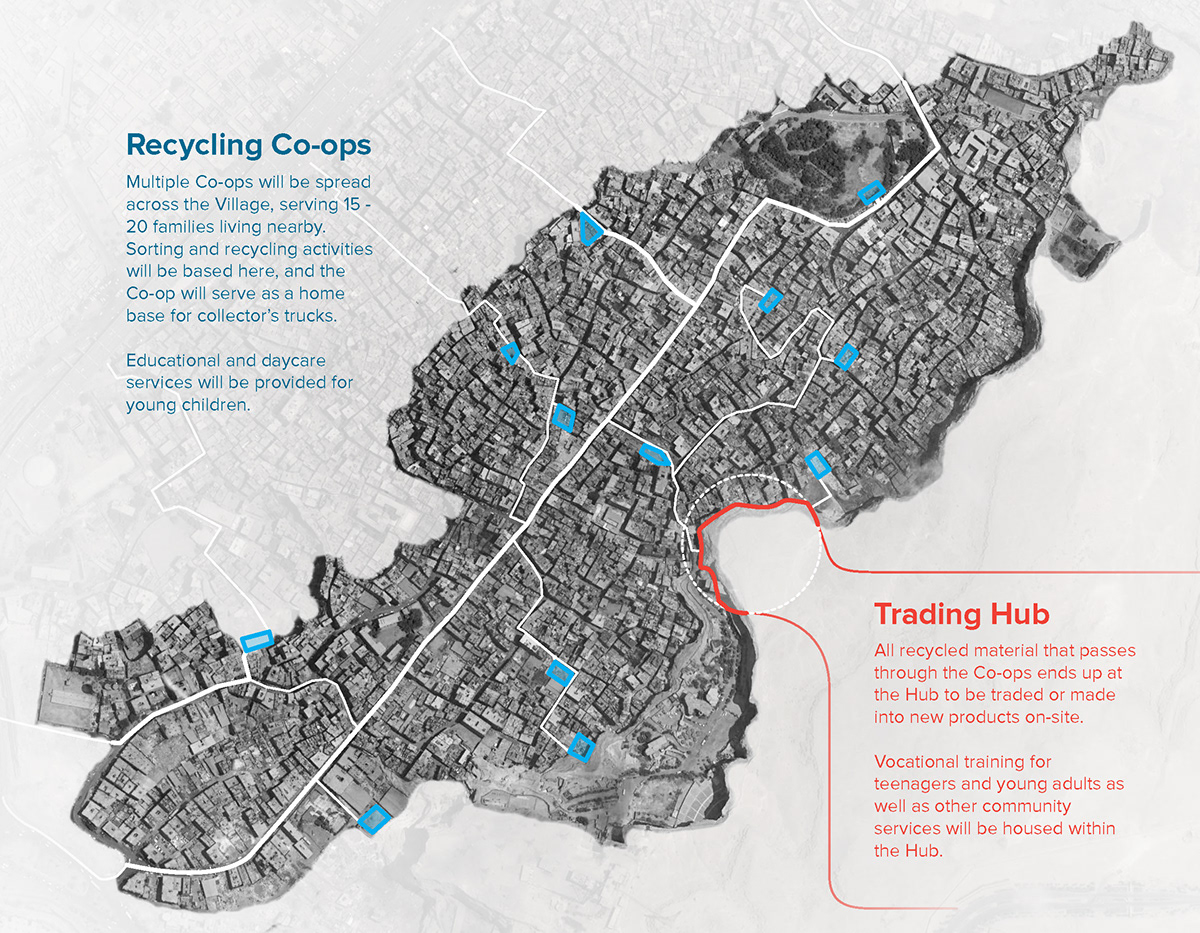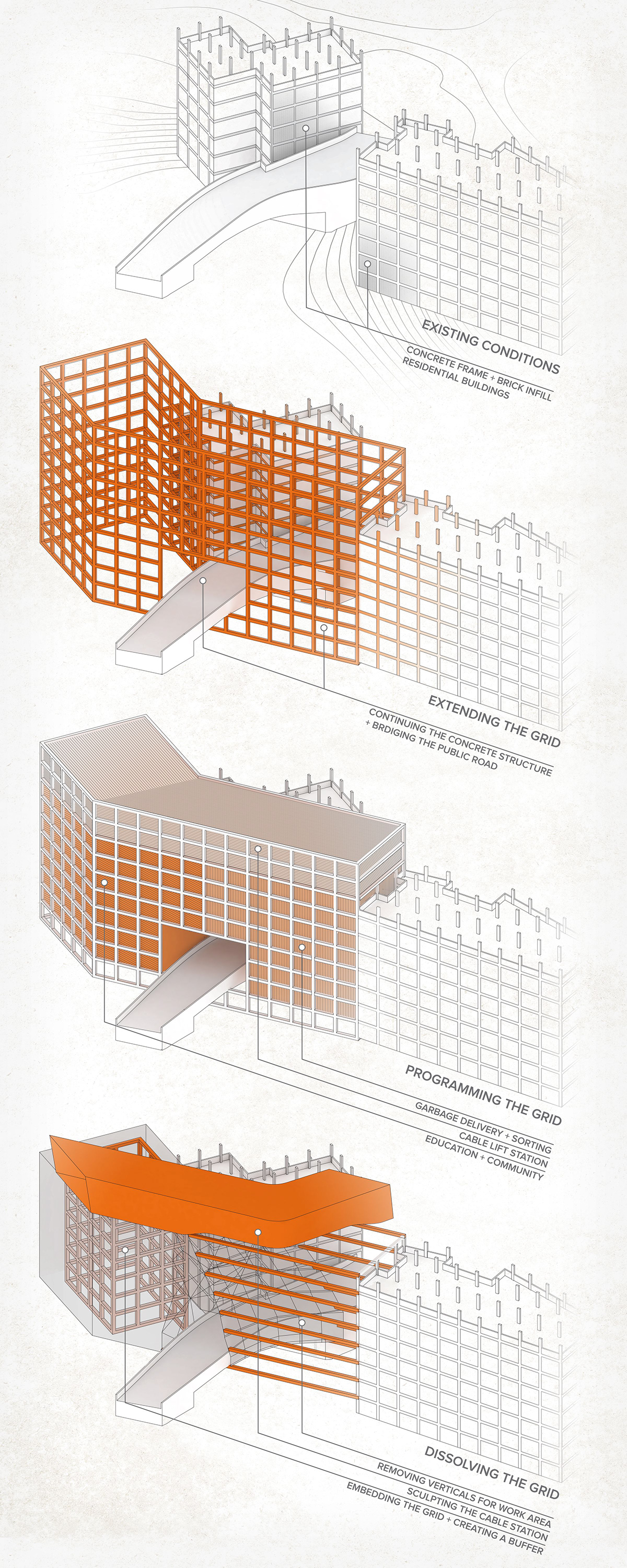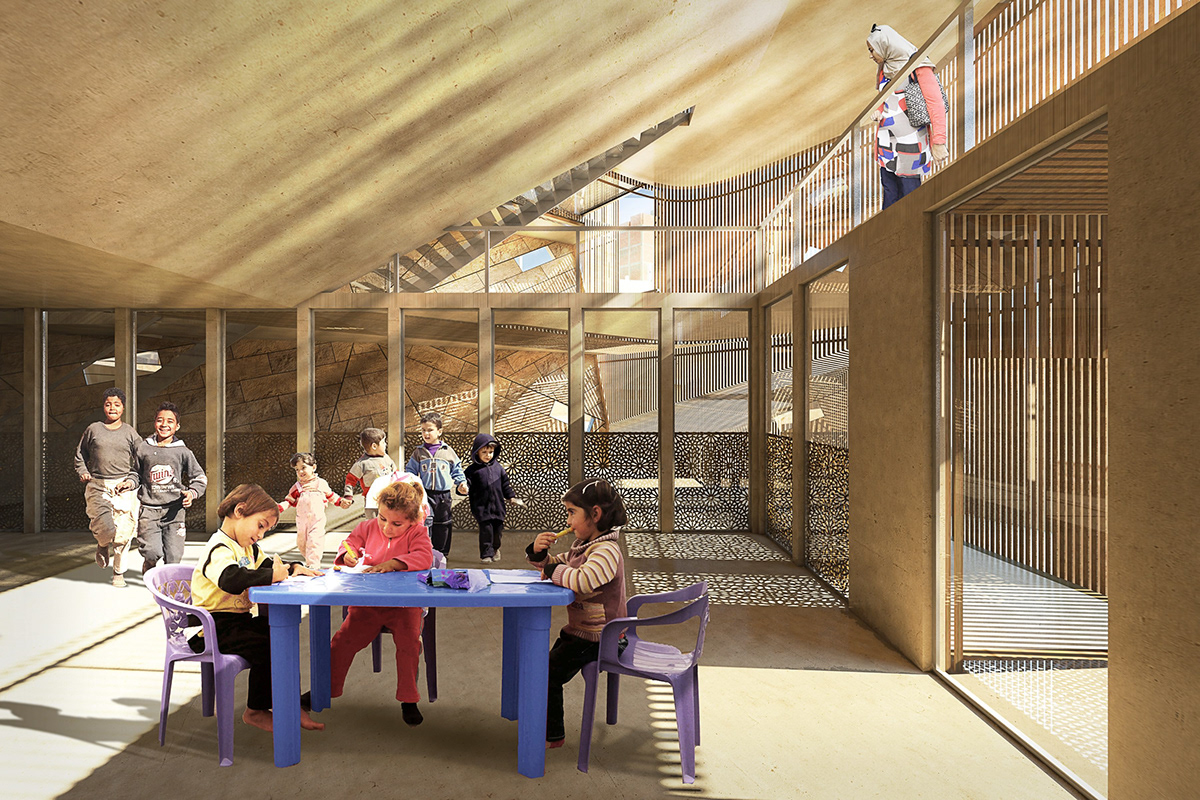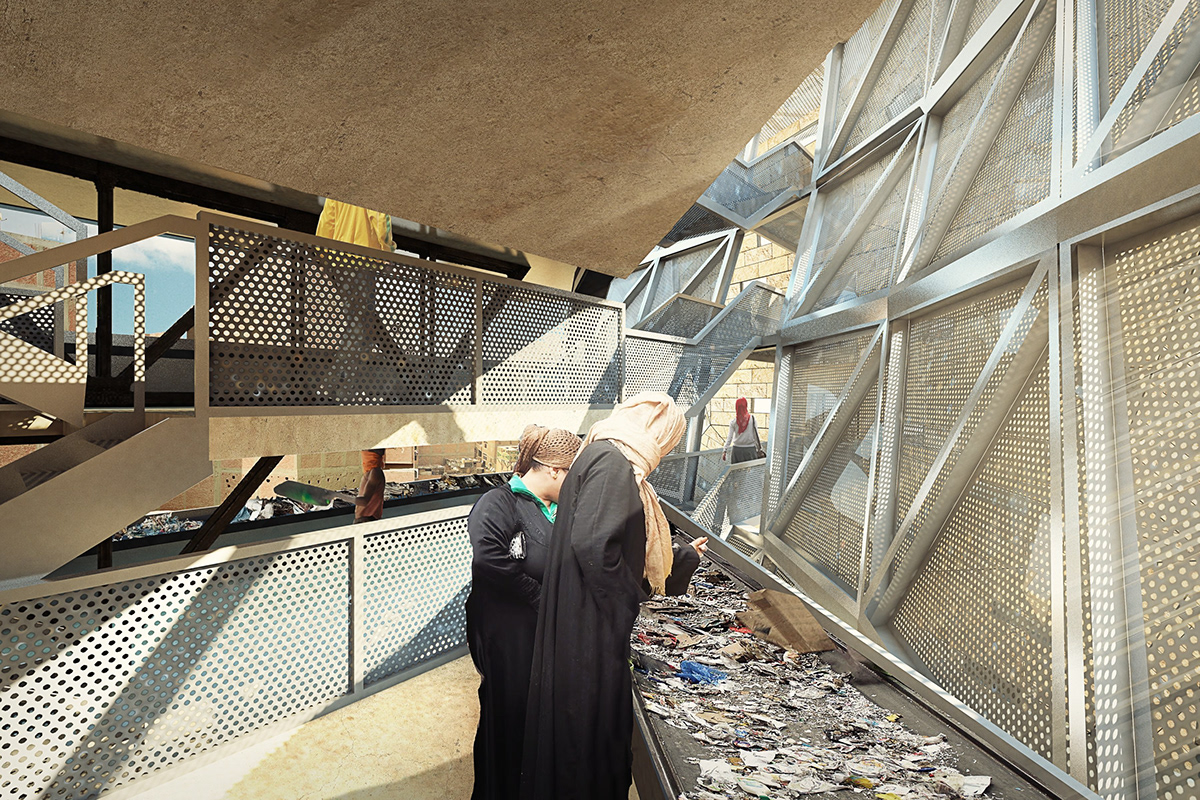
AntiTerminus | Cairo, Egypt
The Zabbaleen community resides in an informal settlement named Mokattam village in Cairo.
Most of the residents earn their living through garbage recycling. From collecting, sorting, processing, and trading, each step of the recycling procedure is broken down and specialized by different families. Besides being labor-intensive and unhygienic, garbage recycling also takes away the opportunities for children to get educated.
AntiTerminus envisions a network of garbage sorting and recycling co-ops owned and operated by the Zabbaleen community. Individual co-op centralizes the former scattered sorting and recycling processes in residential buildings to an industrial scale. Increased efficiency generates additional income to support child care and educational programs for children while their parents work nearby.

Recycling co-ops network is connected with cable car for processed recyclables to reach the Trading Hub on top of the cliff
The architectural intervention, not only frees up living space in and around the buildings for the residents previously used for garbage sorting and storage but also establishes a resilient and an autonomous economy.

Exploded axonometric drawing showing the two main programs of a co-op: processing facility and educational program.

The front facade of the co-op reflects the two distinct but interconnected programs offered.


Context informed structural framework: RC frame with brick infill walls.

Day care and educational facility.

Industrial scale sorting facility.

Cable car network lefts the tradable goods directly towards the Hub.

A night view of the co-op, the finishes are made from recycled materials collected by the community.
An animation of recycling co-ops network

Conceptual drawing of the programs annexing into the existing building structural framework.
